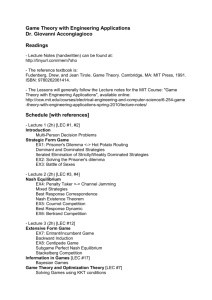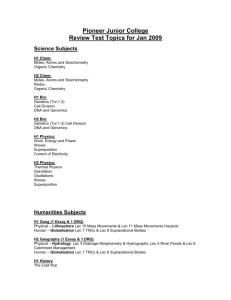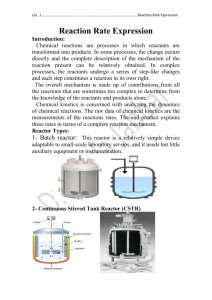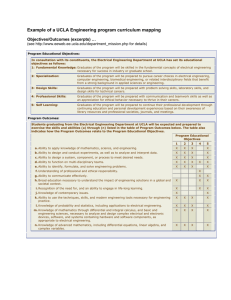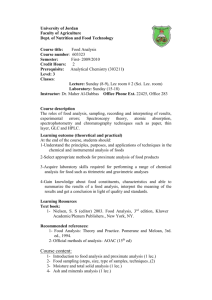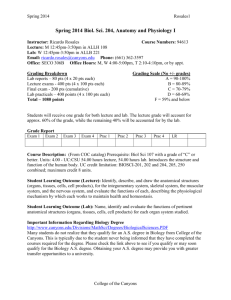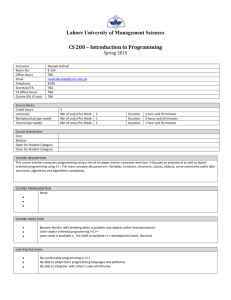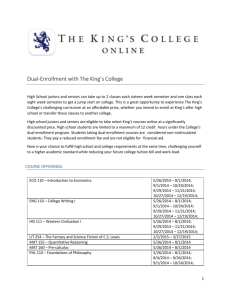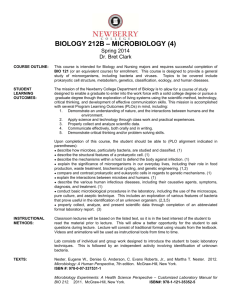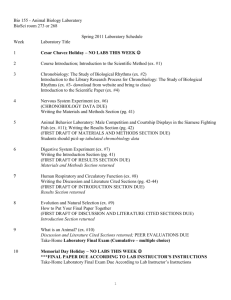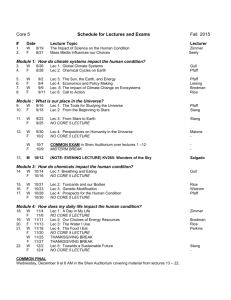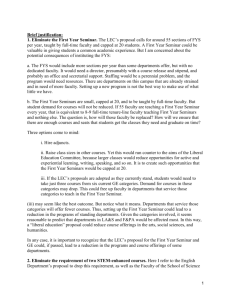ders bi̇lgi̇leri̇
advertisement
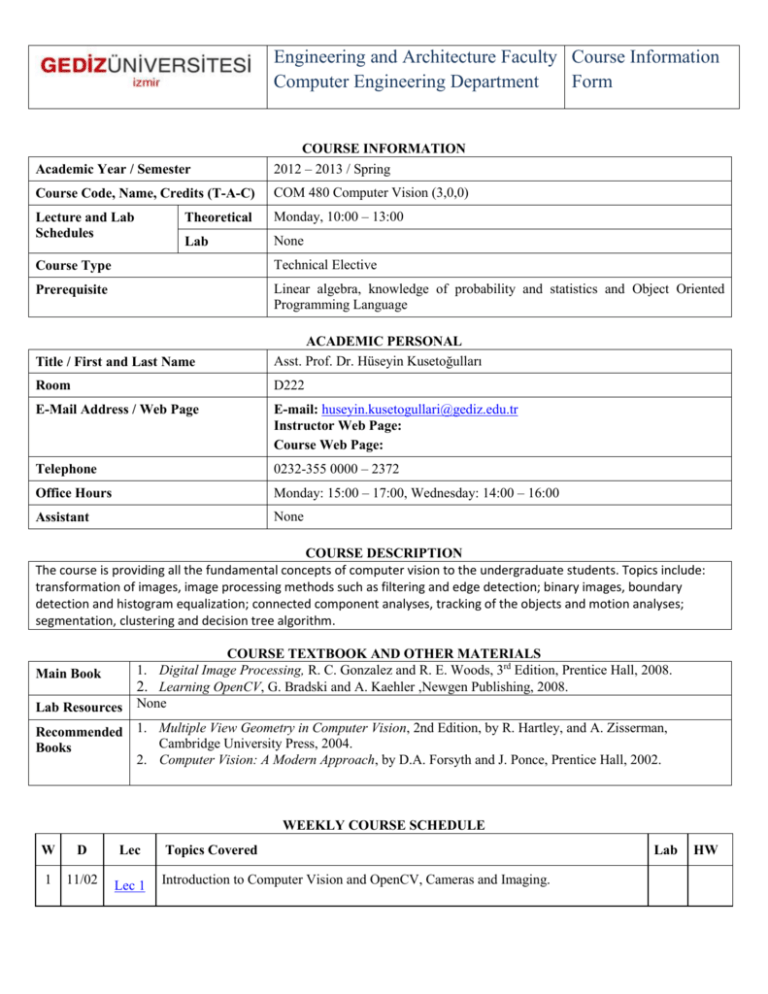
Engineering and Architecture Faculty Course Information Computer Engineering Department Form Academic Year / Semester COURSE INFORMATION 2012 – 2013 / Spring Course Code, Name, Credits (T-A-C) COM 480 Computer Vision (3,0,0) Lecture and Lab Schedules Theoretical Monday, 10:00 – 13:00 Lab None Course Type Technical Elective Prerequisite Linear algebra, knowledge of probability and statistics and Object Oriented Programming Language Title / First and Last Name ACADEMIC PERSONAL Asst. Prof. Dr. Hüseyin Kusetoğulları Room D222 E-Mail Address / Web Page E-mail: huseyin.kusetogullari@gediz.edu.tr Instructor Web Page: Course Web Page: Telephone 0232-355 0000 – 2372 Office Hours Monday: 15:00 – 17:00, Wednesday: 14:00 – 16:00 Assistant None COURSE DESCRIPTION The course is providing all the fundamental concepts of computer vision to the undergraduate students. Topics include: transformation of images, image processing methods such as filtering and edge detection; binary images, boundary detection and histogram equalization; connected component analyses, tracking of the objects and motion analyses; segmentation, clustering and decision tree algorithm. Main Book Lab Resources COURSE TEXTBOOK AND OTHER MATERIALS 1. Digital Image Processing, R. C. Gonzalez and R. E. Woods, 3rd Edition, Prentice Hall, 2008. 2. Learning OpenCV, G. Bradski and A. Kaehler ,Newgen Publishing, 2008. None Recommended 1. Multiple View Geometry in Computer Vision, 2nd Edition, by R. Hartley, and A. Zisserman, Cambridge University Press, 2004. Books 2. Computer Vision: A Modern Approach, by D.A. Forsyth and J. Ponce, Prentice Hall, 2002. WEEKLY COURSE SCHEDULE W D Lec 1 11/02 Lec 1 Topics Covered Introduction to Computer Vision and OpenCV, Cameras and Imaging. Lab HW Engineering and Architecture Faculty Course Information Computer Engineering Department Form 2 18/02 Lec 2 Image sensing, display a picture, playing a video, image interpolation, Color models, transformation of images and exercises using C/C++ with OpenCV 3 25/02 Lec 3 Signal and Image Processing: Binary Images, Image processing filters, Image sampling and Interpolation methods, Image Resolution enhancement. 4 4/03 Lec 4 Image pyramids, Thresholding, Boundary detection, Image Transforms, histogram equalization and exercises using C/C++ with OpenCV 5 11/03 Lec 5 Edge Detection techniques and Histograms: Accessing Histograms, sequences, Prewitt, Sobel, Canny Edge detection operators and exercises. 6 18/03 Lec 6 Counter finding, matching counters, connected component analysis and exercises 7 25/03 8 1/04 Lec 7 Image Parts and Segmentation: Background Subtraction, Thresholding for background subtraction, standard deviation for Image processing 9 8/04 Lec 8 Watershed Algorithm, Image Repair by Inpainting, Mean-Shift Segmentation 10 15/04 Lec 9 Tracking of the objects and motion: The Basics of Tracking, Corner Finding of the objects 11 22/04 HW1 HW2 Midterm Exam: 10:00 Invariant Features, Optical Flow, Mean-Shift and Cam-shift Tracking, Exercises HW3 12 29/04 Lec 10 Camera Models and Calibration: Camera Model, Camera Model, Undistortion 13 6/05 Lec 11 Object recognition, Machine Learning and clustering methods 14 13/05 Lec 12 Patterns and classes, feature vector, K-Means clustering and Exercises 15 20/05 Lec 13 Binary Decision Trees and Exercises Final Exam GRADING HW4 Engineering and Architecture Faculty Course Information Computer Engineering Department Form In order to pass the Computer Vision course - COM 480, students must show minimum competence in the exams. Any student who does not have a weighted average of 35.0 or greater for midterm and final exams will receive an automatic grade of FF, for lack of minimum competence. The weighted average will be calculated as follows: (0.30 x Midterm Exams + 0.40 x Final Exam) / 0.70 Attendance: Students who fail to attend at least 70% of the classes will receive a grade of FF. Students who meet the above requirements will have their numerical course average calculated with the following weights: Percent (%) Homework 30 Midterm I 30 Final Exam 40 From the numerical course average grades, the students who meet the above requirement, letter grades ranging from AA to FF will be determined in the usual way (taking into account overall performance and distribution of the scores, class and effort, as well as the attendance (in class) of the student. We will be very careful in grading the homework assignments and exams so that everybody gets the grade that he/she deserves. Copying will not be tolerated and will be checked and punished rigorously.
